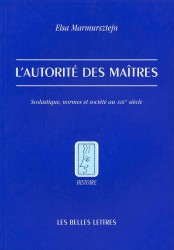- ホーム
- > 洋書
- > 英文書
- > Computer / Operating Systems
Full Description
If you're a novice programmer and you want to learn C#, there aren't many books that will guide you. Most C# books are written for experienced C++ and Java programmers. That's why Jesse Liberty, author of the best-selling books "Programming C#" and "Programming ASP.NET", has written an entry-level guide to C#. Written in a warm and friendly manner, "Learning C#" assumes no prior programming experience, and provides a thorough introduction to Microsoft's premier .NET language. The book helps you build a solid foundation in .NET, and shows you how to apply your skills through the use of dozens of tested examples. You'll learn about the syntax and structure of the C# language, including operators, classes and interfaces, structs, arrays, and strings. Better yet, this updated edition of "Learning C#" has been completely revised to include the very latest content and teaching techniques. Here's what's new: a detailed explanation of C# 2.0
; an introduction to Visual Basic 2005, a tool set for building Windows and web applications; more than 200 questions and programming exercises to help you better judge your understanding of the material; a greater emphasis on event handling; and information on generics and generic collections. By the time you've finished "Learning C#", you'll be ready to move on to a more advanced programming guide that will help you create large-scale web and Windows applications. Whether you have a little object-oriented programming experience or you are new to programming altogether, "Learning C#" will set you firmly on your way to mastering the essentials of the C# language.
Contents
Preface 1.C#and .NET Programming C#2005 and .NET 2.0 2 The .NET Platform The .NET 2.0 Framework The C#Language The Structure of C#Applications The Development Environment What 's in a Program? Your First Program:Hello World The Compiler Examining Your First Program Summary Quiz Exercise 1 2.Visual Studio 2005 Before You Read Further Start Page Projects and Solutions Web Sites Templates Inside the Integrated Development Environment Building and Running 24Menus and Toolbars File Menu Edit Menu View Menu Refactor Menu Project Menu Build Menu Debug Menu Data Menu Format Menu Tools Menu Window Menu Help Menu Summary Quiz Exercises 3.C#Language Fundamentals Statements Types Numeric Types Non-Numeric Types:char and bool Types and Compiler Errors Variables Definite Assignment Constants Literal Constants Symbolic Constants Enumerations Strings Expressions Whitespace Summary Quiz Exercises 4.Operators The Assignment Operator (=) Mathematical Operators Simple Arithmetical Operators (+,-,*,/) The modulus Operator (%) Increment and Decrement Operators Calculate and Reassign Operators Increment or Decrement by 1 The Prefix and Postfix Operators Relational Operators Use of Logical Operators with Conditionals The Conditional Operator Operator Precedence Summary Quiz Exercises 5.Branching Unconditional Branching Statements Conditional Branching Statements if Statements Single-Statement if Blocks Short-Circuit Evaluation if ...else Statements Nested if Statements switch Statements Falling-Through and Jumping-To Cases Switch on string Statements Iteration (Looping)Statements Creating Loops with goto The while Loop The do ...while Loop The for Loop Summary Quiz Exercises 6.Object-Oriented Programming Creating Models Classes and Objects Defining a Class Class Relationships The Three Pillars of Object-Oriented Programming Encapsulation Specialization Polymorphism Object-Oriented Analysis and Design Summary Quiz Exercises 7.Classes and Objects Defining Classes Instantiating Objects Creating a Time Class Access Modifiers Method Arguments Constructors Initializers The this Keyword Static and Instance Members Invoking Static Methods Using Static Fields Destroying Objects Memory Allocation: The Stack Versus the Heap Summary Quiz Exercises 8.Inside Methods Overloading Methods Encapsulating Data with Properties The get Accessor The set Accessor Returning Multiple Values Passing Value Types by Reference out Parameters and Definite Assignment Summary Quiz Exercises 9.Basic Debugging Setting a Breakpoint Using the Debug Menu to Set Your Breakpoint Setting Conditions and Hit Counts Examining Values:The Autos and Locals Windows Set Your Watch The Call Stack Summary Quiz Exercises 10.Arrays Using Arrays Declaring Arrays Understanding Default Values Accessing Array Elements The foreach Statement Initializing Array Elements The params Keyword Multidimensional Arrays Rectangular Arrays Jagged Arrays Array Methods Sorting Arrays Summary Quiz Exercises 11.Inheritance and Polymorphism Specialization and Generalization Inheritance Implementing Inheritance Calling Base Class Constructors Controlling Access Polymorphism Creating Polymorphic Types Versioning with new and override Abstract Classes Sealed Classes The Root of All Classes:Object Boxing and Unboxing Types Boxing Is Implicit Unboxing Must Be Explicit Avoiding Boxing with Generics Summary Quiz Exercises 12.Operator Overloading Using the operator Keyword Creating Useful Operators The Eq






